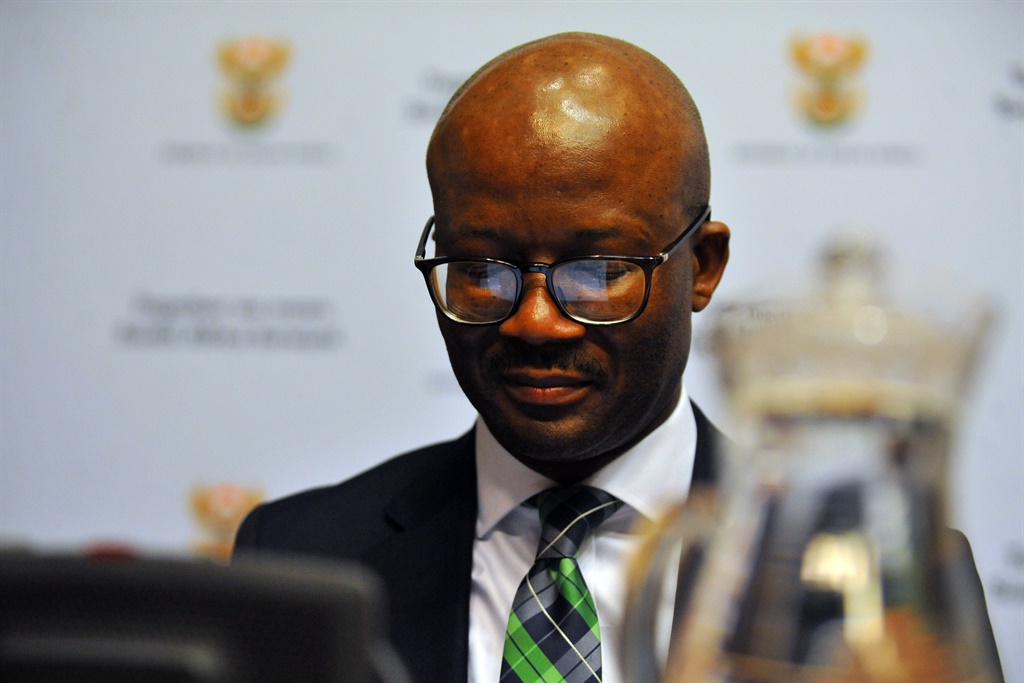We have the funds to pay for vaccines, says Treasury's Mogajane

National Treasury's Director-General Dondo Mogajane has maintained it has the funds to secure vaccines and that finance won't be an issue for South Africans to receive doses.
Mogajane was speaking during a virtual engagement between Treasury officials and the South African National Editors' Forum on Wednesday.
"If any of the manufacturers come tomorrow and say, 'We need the money,' we will be able to pay," said Mogajane.
The cost of vaccinating about 40 million South Africans is estimated between R20 billion and R24 billion, said Mogajane. He, however, highlighted that final figures - and details on how funding would be provided - would be made clear at the tabling of the national budget in Parliament on 24 February.
He detailed three main options for financing vaccines: the first being taxes, which is how government funds most operations.
Tax option 'available'
"We are not saying we are going to increase VAT. We are not saying we are going to increase Pay-As-You-Earn. We are not saying we are going to increase Corporate Income Tax. All we are saying, the option is available …" he said.
Secondly, government could increase borrowing if there are limited resources, which according to Mogajane has been the case for a number of years.
Treasury is still in negotiations to secure a loan from the World Bank, deputy director-general of asset and liability management Tshepiso Moahloli confirmed. "All sources of funding would be considered and would be made available at the time of the budget," said Moahloli.
Thirdly, reprioritising of existing budgets is also on the table - even though Treasury is now cutting close to the bone, as Mogajane put it. "We have been reprioritising to a point where we are reaching the bone of some of government programmes, so we cannot cut any further."
The SAA factor
He admitted that departments have been feeling the pinch, most recently reprioritisations were made to free up R10.5 billion to aid SAA's business rescue process. "The more we cut it is unsustainable," said Mogajane. He explained reprioritisation was starting to affect service delivery. However there are some programmes which must be stopped or modified or refocused to the "right direction," he said.
The additional option is a withdrawal from the National Revenue Fund, by means of a process enabled by s16 of the Public Finance Management Act which allows for the use of funds in emergency situations. "I think it should qualify,"said Mogajane.
Treasury could possibly pursue a combination of these options, he explained.
Not dragging feet
Mogajane explained that Treasury and the Department of Health was constantly engaging with business on the logistics of procuring vaccines, and he had even attended a meeting earlier that day.
He said Treasury is part of a task team working to procure the vaccine and it cannot be said that the Treasury is dragging its feet or delaying procurement.
"We formed these work groups to speed up the process," said Mogajane.
Mogajane said donations from business to secure vaccines are welcomed, however the supply of vaccines is a public good and the responsibility of the state.
"The state cannot be found wanting in making sure that responsibility it has, is fulfilled." He said that discussions on medical aids possibly paying contributions for vaccines are ongoing and have not been finalised. Fin24 previously reported that medical aid schemes are collaborating to help fund vaccines for uninsured people.
The Government Inter-Ministerial Committee on vaccines, chaired by Deputy president David Mabuza is an added layer to ensure the expedition of vaccine procurement, Mogajane explained.
While work is being done to iron out details to procure vaccines, Mogajane said that no plan is without challenges.
On the issue of potential corruption in the procurement of vaccines, Mogajane said that government was engaging directly with manufacturers and cutting out the middlemen to avoid a repeat of the Personal Protective Equipment corruption scandal.
Minister of Health Zweli Mkhize previously aid that middlemen were charging four times the price for vaccines.
"We have established processes, this is not the first-time vaccines are being sourced, it happens all the time, Mogajane said. "Everything will be above board … we learnt from the PPE scandal a few months ago."

